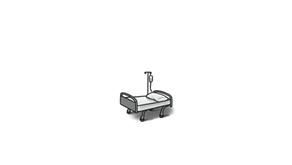Conspiracies: Medicinal and toxic
By Gwen Carroll Dec. 15, 2022

Tear gas clouds the air as police officers form a barricade, struggling to ward off a crazed mob forcing their way into the Capitol Building. Not far away, a gallows is erected, the noose hanging ominously as thousands of rioters chant, “Hang Mike Pence!” over the din of the chaos. Across the nation, onlookers watch in horror as the Capitol Building is broken into and vandalized.
The infamous date was Jan. 6, 2021, when a mob of Donald Trump supporters flooded the building, willing to risk life and limb to prevent Congress from officializing Joe Biden’s victory in the presidential election. The Jan. 6 insurrection claimed the lives of five victims, four of whom were among the seditious mob, and injured countless more.
The individuals were united by the same belief—that Democrats had stolen votes that rightfully belonged to Trump. Beliefs such as this that challenge what is widely considered fact are known as conspiracy theories. As the corpses pile higher because of these theories, one begins to wonder why some people are drawn to what is often considered baseless conjecture with no evidence.
According to Jan-Willem van Prooijen, social psychology professor at Vrije Universiteit Amsterdam, believing in conspiracy theories provides a sense of meaning and purpose to those who feel lost or unimportant. They can also be a form of instant gratification, with some believers giving up lifelong happiness—and sometimes even life itself—for validation and a rush of excitement.
“Conspiracy theories present an intriguing perspective that science does not offer. Some people believe in conspiracies such as UFOs and aliens for fun. They provide a break from the mundaneness of day-to-day life,” Sophomore Aditi Chowdhary said.

However, in his paper “Psychological benefits of believing conspiracy theories,” van Prooijen claims that since conspiracy theories rely on undermining an established authority, they sow distrust in their believers, leading victims to separate themselves from the rest of society. The resulting social ostracization makes the conspiracists more dependent on the theory and fellow believers, leading to a cycle that feeds upon itself—not unlike a drug addiction—with the difficulties of life buried rather than resolved at their root.
Conspiracy theories are notoriously difficult to disprove. Instead, as Aleksandra Cichocka, co-author of “Routledge Handbook of Conspiracy Theories,” found, the best defense is a good offense; that is, it is more effective to nip new theories in the bud than to try to debunk existing ones. Cichocka calls this prebunking—making sure people do not fall for misinformation by alerting them of it beforehand, similar to a vaccination. She added that online games such as “Bad News” and “Go Viral!” can help people learn to be wary of misinformation, especially on the internet where it runs rampant.
“Many conspiracies originate from the internet, where fake news spreads extremely easily. The internet has a large impact on people’s viewpoints because people who see false information can be easily misled,” Freshman Ingrid Magyari-Kope said.
Indeed, the 2021 study “Conspiracy Theories and Their Societal Effects During the COVID-19 Pandemic” found that just being exposed to these conspiracies can make people more susceptible to believing in them. With misinformation in every crevice, it is more vital than ever to stay aware of the information one consumes.
About the Contributors

Gwen Carroll
staff writer
Gwen Carroll is a sophomore at LelandHigh School. She enjoys writing, both as a hobby and academically, and in her free time, likes to cook and study psychology.

Jane Hong
artist
Jane Hong is a freshman at Leland High School and works as an artist for The Charger Account. In her free time, Jane dances to K-pop, watches k-dramas, and practices drawing.

















Comments